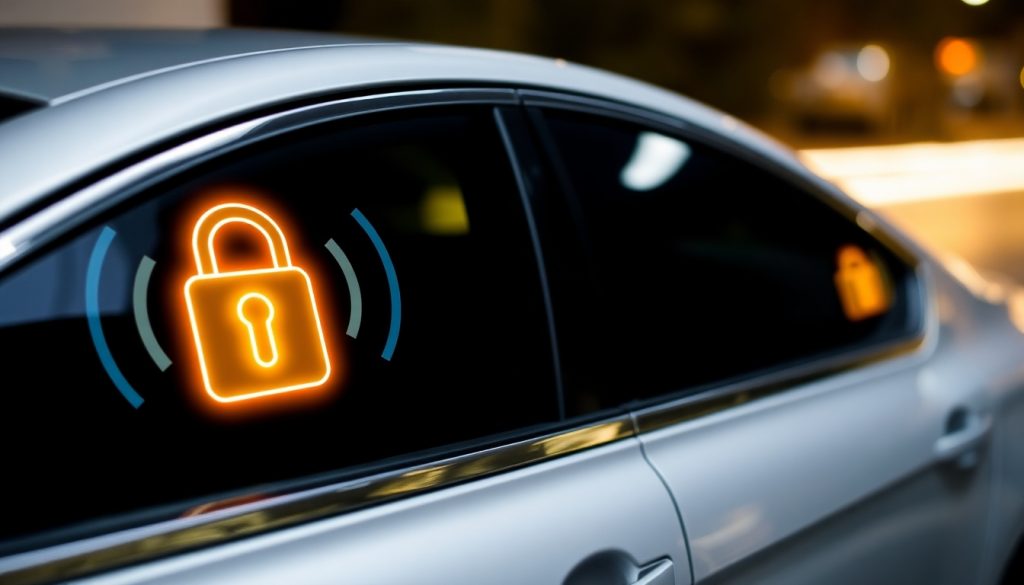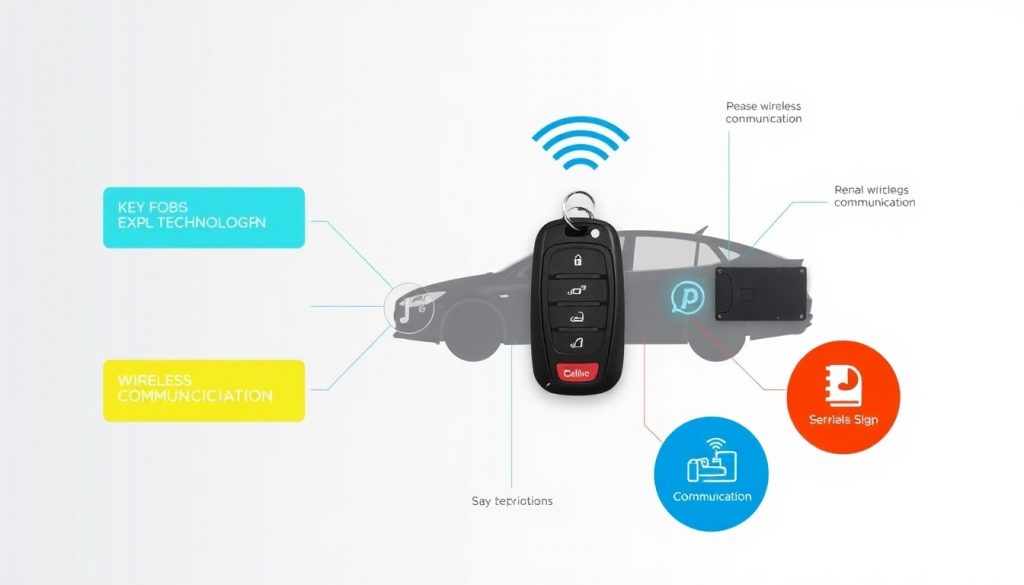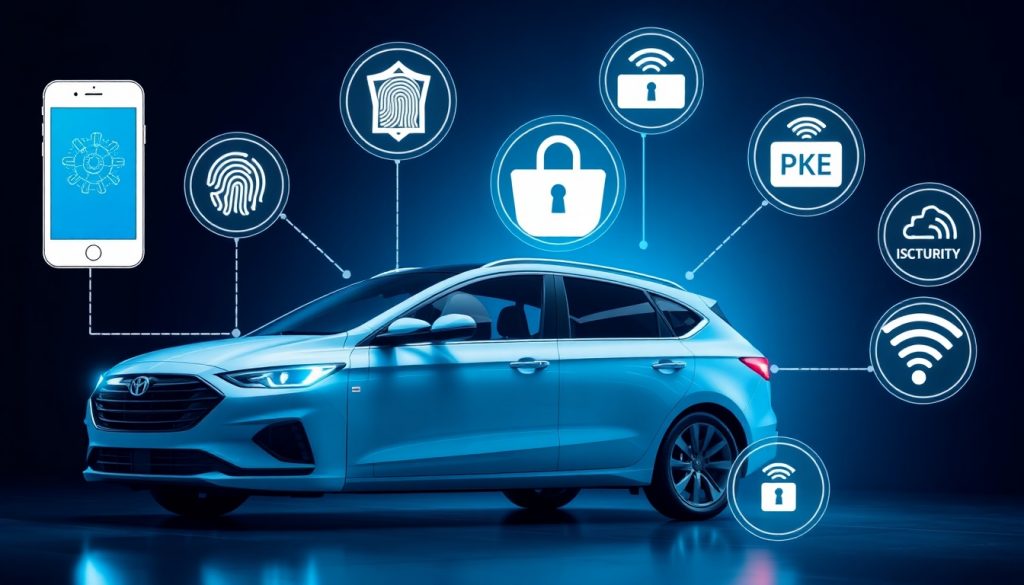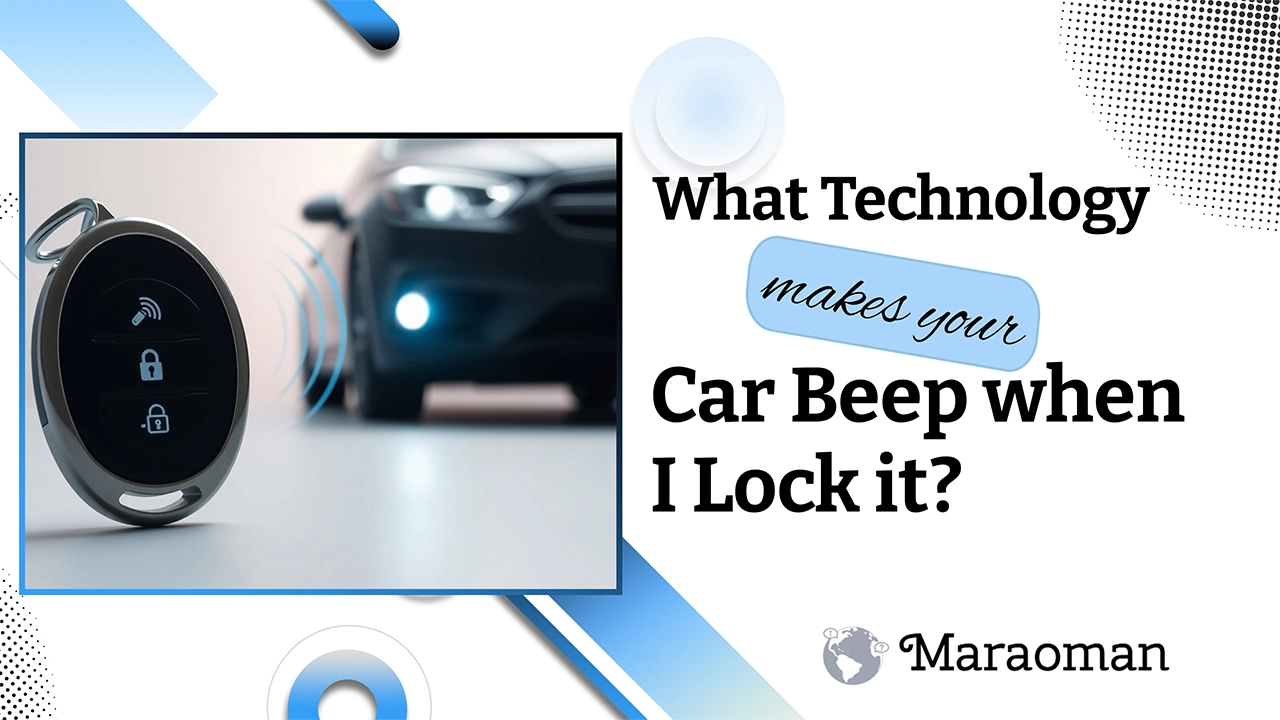What Technology Makes Your Car Beep When I Lock It? A Deep Dive into Car Locking Technology
If you’ve ever locked your car and heard that reassuring “beep-beep” sound, you know it’s more than just a noise. It’s a signal that your car is secure and ready to go. But have you ever wondered what technology makes your car beep when you lock it? It’s not just a simple sound; it’s the result of multiple sophisticated systems working in tandem to enhance both convenience and security.
In this article, we’ll break down the technology behind that familiar beep, explain how car alarm systems, key fobs, and wireless communication play crucial roles and explore exciting innovations shaping the future of automotive security.
Key Highlight
- The car beep confirms the vehicle is locked and the alarm system is armed.
- Sensors like motion and door sensors play a crucial role in car security and beep activation.
- Drivers can adjust the locking beep sound and volume and even switch to silent modes.
- Emerging tech like smartphone integration and biometric security is shaping the future of car locking systems.
Why Does Your Car Beep When You Lock It?

The “beep” that follows when you lock your car serves two key purposes:
1. Confirmation of Locking
The beep serves as an audible confirmation that your car’s locking mechanism has engaged successfully. It’s a quick way for the driver to know that the vehicle is secured and the doors are locked.
2. Security Alert
Modern vehicles are equipped with complex alarm systems. The beep signals that the alarm system has been armed and that the car is secure from unauthorized access.
Breaking Down the Technology Behind the Beep
Several technologies work together to make the beep sound, including key fob communication, advanced car alarms, and wireless communication systems. Let’s dive deeper into each of these components:
Key Fob Communication: The Power of Radio Frequency (RF)
When you press the lock button on your key fob, the key fob sends out a unique radio frequency (RF) signal to your car’s receiver. This signal is usually transmitted at a frequency of 315 MHz in North America or 433.92 MHz in other regions.
How It Works:
- The key fob emits a low-power, encrypted RF signal, which is picked up by the car’s receiver.
- The car’s receiver verifies the signal using encrypted codes to ensure that the command is coming from an authorized source.
- Once verified, the car locks its doors, triggering the beep for confirmation.
This secure wireless communication allows for remote locking and unlocking, which is incredibly convenient and ensures that your vehicle is secure even when you’re far away.
Car Alarms and Security Sensors: The Backbone of Your Vehicle’s Safety

Car alarm systems use a combination of sensors and modules to provide security and detect any possible threats. Here are the most common types of sensors:
Types of Sensors:
- Door Sensors: Detect if any doors or the trunk are ajar. If the car’s locking mechanism detects an open door, the system will prevent the alarm from arming.
- Motion Detectors: Detect unusual movement around the vehicle, which might indicate a break-in.
- Tilt Sensors: Detect whether the car is being lifted, towed, or jacked up.
Alarm Activation:
When you lock your vehicle, the alarm system arms these sensors. The beep serves as an audible confirmation that your alarm system is active and monitoring for potential threats.
The Beep: Not Just Noise, But Security in Action
While the beep may sound simple, it’s the result of complex mechanisms working behind the scenes. In the past, vehicle systems used a single honk or beep to indicate the car’s security status, but today, manufacturers offer a variety of customization options for feedback sounds:
1. Basic Beep Sound
A simple chirp or beep confirms that the car is locked and the alarm is activated.
2. Horn Honk
In some cars, a horn honk is used to provide a louder confirmation of locking.
3. Silent Mode
Newer cars allow drivers to activate a silent mode where only visual signals (such as flashing lights) confirm the lock. This is ideal for urban areas with noise restrictions.
4. Customizable Beep
Some vehicles let drivers customize the sound, volume, and duration of the beep, allowing a more personalized experience.
The Evolution of the Beep: From Basic to Customizable
The car locking beep has evolved significantly since its inception. Early systems offered only a basic honk or chirp. Today, modern cars provide several options:
Smart Beep Customization
Some vehicles offer settings where you can adjust the type of beep from a gentle chime to a loud honk. Drivers can also choose visual signals like flashing lights instead of a beep.
Silent Mode for Urban Areas
To reduce noise pollution in residential or urban areas, newer cars have silent modes where only flashing lights confirm that the car is locked. This feature can be activated through the vehicle’s settings.
Emergency Beep Patterns
Some vehicles emit different sounds to indicate emergency situations. For instance, if your car detects an unauthorized entry, the beep will change to a rapid, continuous pattern to alert you.
How Vehicle Security Systems Are Advancing

1. Smartphone Integration for Remote Locking
With the advent of smartphone apps, drivers can now lock and unlock their vehicles remotely. Apps allow you to control the beep, receive notifications, and even track your car’s location. This makes car security even more convenient and accessible.
2. Biometric Feedback: The Future of Car Security
In the near future, vehicles may use biometric systems like fingerprint scanners or facial recognition to replace traditional key fobs. This would enhance security and convenience by ensuring that only authorized users can lock/unlock the vehicle.
3. Passive Keyless Entry (PKE) Systems
Some newer vehicles have passive keyless entry (PKE) systems, which automatically detect the proximity of your key fob and unlock the doors without the need to press any buttons. This technology eliminates the need for physical interaction with the key fob, making locking and unlocking even easier.
4. Wireless Communication and Cloud Integration
The rise of wireless communication technologies such as Bluetooth Low Energy (BLE) and Near-Field Communication (NFC) is paving the way for more secure and efficient vehicle communication. These systems enable faster and more reliable data transmission between the key fob and the car.
Fun Facts About the Beep
Here are some interesting tidbits about the locking beep and car security systems:
- European and Asian Models: Due to noise regulations in some countries, many vehicles rely solely on visual signals (like flashing lights) to indicate the car is locked, eliminating the audible beep.
- Electric Vehicles: Due to their silent operation, electric vehicles often produce louder, more distinct beeps to give drivers audible feedback. This is especially important in urban environments where traditional car sounds may be absent.
- Customization: Car enthusiasts often reprogram their vehicle’s locking sounds, turning them into unique beeps or even pop culture references, like the sound of a famous movie character or song.
The Importance of Car Locking Technology in Preventing Theft
One of the main reasons that vehicles beep when locked is to deter theft. As car theft rates increase, manufacturers have had to innovate in security systems to ensure that vehicles are as secure as possible. The beep not only confirms that the vehicle is locked but also acts as a deterrent to would-be thieves who might be attempting to tamper with the car.
Modern Car Theft Prevention Technology
- Electronic Anti-Theft Systems: Today’s vehicles feature advanced electronic anti-theft systems that can prevent hot-wiring, track stolen vehicles, and even disable the ignition remotely.
- Proximity Sensors: Some vehicles now use proximity sensors that can detect motion around the car and trigger the alarm if someone is tampering with it.
FAQs
Why does my car sometimes honk instead of beep when I lock it?
A honk usually means there is an issue with securing the car, such as a door or trunk not being fully closed. It’s a feature built into your car’s alarm system to indicate that the vehicle may not be properly locked.
Can I turn off the locking beep?
In many vehicles, yes. You can disable the beep or adjust its volume through your car’s settings or onboard menu. Check your owner’s manual for specific instructions.
What if my car doesn’t beep at all when I lock it?
If your car stops beeping when you lock it, check the key fob battery, inspect the car alarm system, or make sure the speakers are functioning properly.
Can I change the sound of my car’s locking beep?
Yes, many vehicles allow you to customize the sound, volume, and duration of the locking beep through the car’s settings or menu.
Why does my car beep multiple times when I lock it?
Multiple beeps usually indicate an issue, such as a door or trunk not being fully closed. Check for any open areas to resolve this.
Does the locking beep affect the car’s battery?
The locking beep consumes minimal battery power, but if the car alarm system or key fob is malfunctioning, it could impact the battery more significantly.
Share this content:















Post Comment